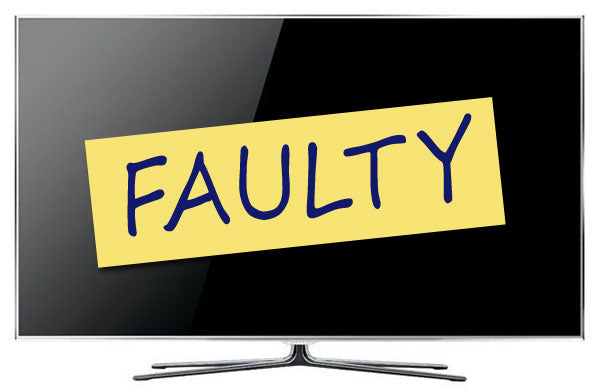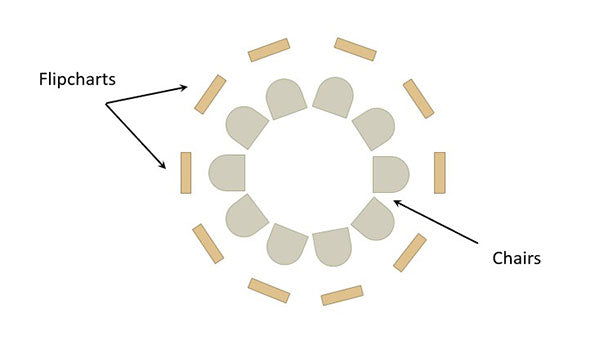Purpose
This exercise combines crisis management and brainstorming. You can use it as a template for a series of exercises on problem solving using different methods depending on what you are covering in your course.
Objective
Manage a crisis by brainstorming for solutions.
What You Need
- A description of a particular problem in manufacturing certain gadgets. You need one description for each group. You can define a problem yourself based on the common background of delegates or you can use a scenario such as the one shown at the end of this article. You will need to prepare and provide a copy of this scenario along with potential problems to each group. Choose one problem for each group so they have to come up with different solutions, though they can work on a similar scenario. You can give more than one problem to each group to increase the complexity and make the problem solving exercise more challenging.
Setup
- Divide the delegates to groups of 4 or 5. If you don’t have enough delegates to use at least two groups, run the exercise for all of them acting as one group.
- Explain that for this exercise, each group must assume that they are all working for a company that manufactures certain gadgets. They are senior managers who have gathered in a meeting room and need to go through a crisis management activity. Apparently there has been a significant problem with the production and issues have been reported by early customers. As a group, delegates need to brainstorm solutions to address the crisis.
- It is up to you, the trainer how to bias this exercise based on what you want to teach. For example, you can choose from brainstorming techniques such as the Delphi method, six thinking hats, trade-off analysis or nominal group technique to get the participants brainstorm a solution for the crisis. In addition, you can also enforce crisis management methodologies such as data collection, PR management, damage control and so on.
- Provide a copy of the scenario to each group. In addition, provide the description of the problem or the crisis they need to manage.
- Allocate about 15 minutes for the brainstorming and problem solving session.
- Bring back everyone together and ask each group to present their case and their solutions to others. Encourage other groups to provide feedback and perhaps improve on the ideas presented already.
- Continue until all groups have presented their cases.
- Follow with a general discussion.
Timing
Explaining the Exercise: 5 minutes
Activity: 15 min brainstorming + (10 min specific discussion for each group * N) = 35 minutes for two groups
Group Feedback: 10 minutes
Discussion
How easy was it to come up with a practical solution? Was it easy to choose a particular course of action? What voting system did you use and did it produce good results? Was your group happy with the process? If you have to go over this exercise again, what would you do differently? In crisis management, most often you need to choose between bad and worst; how did you deal with making a compromise? What do you think of the specific brainstorming or crisis management methodology that you have used?
Scenario
You are a company that manufactures TVs. You have just introduced the latest edition of your TV and expect global sales to reach millions within three months in the run up to Christmas and the critical shopping season. You have a strong brand and a market presence so you will need to protect your reputation at all costs. Customers are reporting various issues with the latest TV and you will need to address them before the issues start to impact the sales of this product, or worst the sales of your other products.
List of possible problems (give one or more problems to each group on a separate sheet:
Problem 1
Customers are reporting that when the TV uses the WiFi to connect to the internet, the communication channel seems to be very poor and affecting video streaming. Originally, your PR department issued a statement that suggested customers to adjust the settings of their routers or simply don’t use other WiFi devices nearby. Yet, the problem persists and the customers are getting angrier thinking that the company doesn’t want to accept any fault. Last week, a major independent consumer electronic magazine carried out extensive tests on the TV and reported that the WiFi function of the TV operates at a reduced speed and the connection is frequently dropped. The report is currently getting picked up by major news agencies around the world and the blog sphere is intensely active on the topic. People seem to be outraged by the original PR response more than anything. You will now need to address this, or face potential loss of sales and market share.
Problem 2
A month after the purchase, the TV starts to go through a cycle of turning itself on and off. The problem could be due to bad settings for the sleep function of the TV, remote control interference and faulty power supply capacitor, a bug in the TV software, poor soldering joints during manufacturing or other unidentified issues. Customers are understandably unhappy with this fault. Currently 3% of customers (15000 people) who purchased the new TV are reporting this fault.
Problem 3
Some customers are reporting that the TV screen is scratched as they take it out from the original packaging. It seems that the TV screens are scratched during the production. The issues have been confirmed by several major retailers and you fear that sales might drop if you don’t address this quickly. So far, 2% of customers (10000 people) have reported this issue.
Soft Skills Training Materials
Get downloadable training materials
Online Train the Trainer Course:
Core Skills
Learn How to Become the Best Trainer in Your Field
All Tags
Training Resources for You

Course Design Strategy
Available as paperback and ebook

Free Training Resources
Download a free comprehensive training package including training guidelines, soft skills training activities, assessment forms and useful training resources that you can use to enhance your courses.

Our Comprehensive Guide to Body Language

Train the Trainer Resources
Get Insights - Read Guides and Books - Attend Courses
Training Materials
Get downloadable training materials on: Management Training, Personal Development, Interpersonal Development, Human Resources, and Sales & Marketing














Leave a comment
All comments are moderated before being published.
This site is protected by hCaptcha and the hCaptcha Privacy Policy and Terms of Service apply.